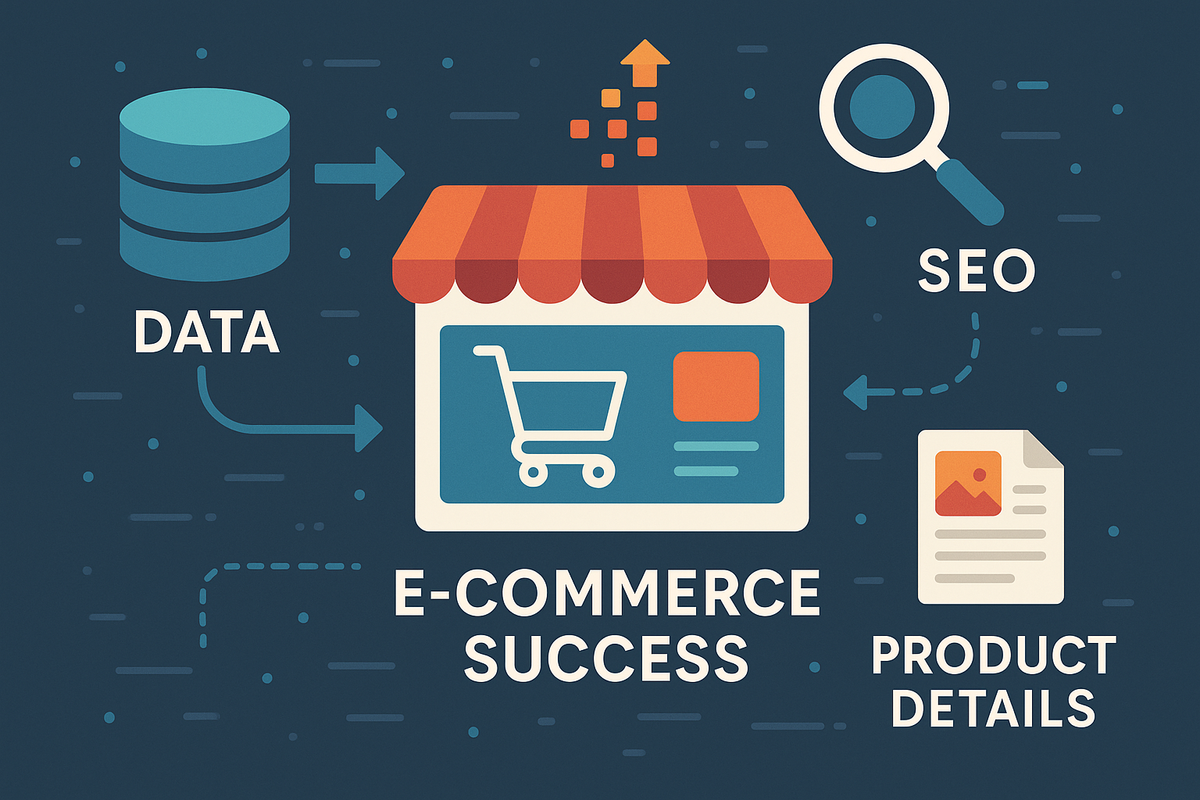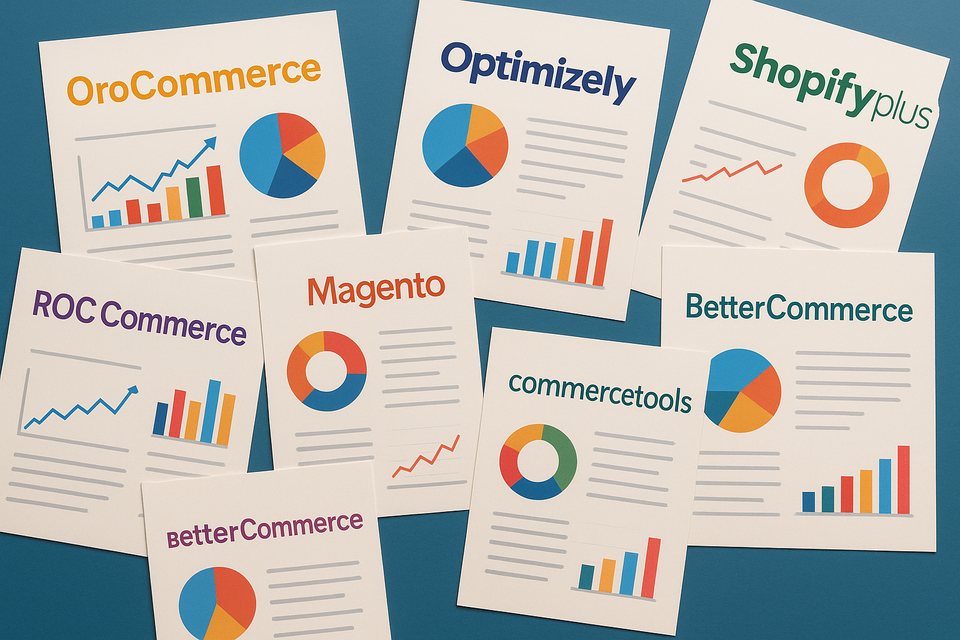Product Data and Content
Tackling product information for e-commerce. Sourcing and maintaining product attributes, keeping your content fresh and customers informed.

Product information enrichment is key to the success of your e-commerce solution. If a buyer lands on your site and searches you products, if they aren't confident with the information they will move onto another source. Having detailed information and images for your products can increase your chances of sales success, as well as bolster your sites SEO.
Data is everything in e-commerce, it's crucial. Product attributes such as: dimensions and weight assist with shipping calculations, long and short description provide context to the product and it's application, categories help organize listing efficiently and lend to enable product suggestions, images and documentation can increase confidence for the buyer that they are moving forward with the right product.
Centralized Robust Information
Where is this information located, where is this source of truth, system of record, central repository? For most, the key product information and associated pricing is held within the company ERP, however not all ERPs can/will/should hold all information relative to a product, that's where there are some options for product information storage. With that said, the ERP will no doubt be integrated with your e-commerce solution as part of your implementation.
PIMs (Product Information Management) are a solid solution, and realistically a requirement for large companies with tens of thousands of products. PIMs centralize your product data and provide user-friendly interfaces for updating and modifying product data individually or on mass - however, PIMs are another license and expense.
If you're looking to save expenses, and you believe product updates will be easier to manage (low frequency changes, consistent product line), you have a couple of options: leverage the ERP as much as you can, and support via e-commerce product management features, or just use the e-commerce product management features entirely.
When it comes to leveraging the ERP, consider if you're ERP can be customized. Does your ERP have the capability to add addition product attributes (and support them through API)? If so, why not create a pseudo-PIM page where you consolidate all product information relative to what will be synchronized from ERP to your e-commerce solution. This approach allows you to have a single page in your ERP to manage the majority of information, excluding images and documentation which ERPs may not be best suited for (this is where you would leverage your e-commerce solution NOTE: consider storage costs when evaluating e-commerce solutions).
Product Information Sourcing
Where do you get the data? How do you retrieve the data and keep it current?
Most of your vendors/suppliers/manufacturers will probably have a catalog, some will have CSV exports of their data, or API integration options into their ERP or similar. Entering and maintaining this data is a full time job, so the option to partner with a provider or hire an individual for manual data entry (from physical catalogs, or scraping webpages) are your main considerations.
The SI/Agency you have chosen for e-commerce implementation and integration may have experience in this area, or may be able to provide some options. There are several third-party companies that try to bridge the gap between the data you have, and the data you want.
Distributor Data Solutions (DDS)

DDS provide a SaaS solution, cloud based PIM, that integrates with over 1200 suppliers/vendors/manufacturers and they maintain information on over 12 million product, based in the US. With DDS you will be able to integrate with your ERP or ecommerce solution to pull the most current information regarding products: images, attributes, references, and documentation.
The beauty of DDS's solution is, because it's a cloud based PIM as a SaaS, you have your own instance that is continually updated through integrations with all their vendors, but it also allows you to make customizations to your particular product data - so you can customize the data to your liking.
Wissend

Wissend is another solution, based in India, that can provide data synchronization of your vendor information if you supply the product and related attributes you are looking for. This would be a custom integration into your solution, and leverage existing or developed integration with your partners to retrieve data. Unlike DDS, their doesn't appear to be a web-based presentation of your data - most likely the solution would involve some pipeline mechanism for updating your ecosystem with the most recent information on a schedule basis.
48WS

48WS is yet another data provider (based in CA, USA), however they are more of a data dump solution, you can check the product which they have information on directly from their site: https://www.48ws.com/products/categories/. 48ws typically provide this data in an Excel sheet, in which case you will have to take an export from your system of record, and then merge the data for reimporting - as mentioned, this is a data dump approach and will not keep information current and potentially requiring a reimport. I do not believe 48ws maintain the data, so if you are looking to update the information, you will probably have to request a new scrape/pull of your vendor/supplier/manufacturers information.
Axtrum

Based in India, with registered headquarters in London, England. Axtrum is more of a service provider, willing to assist with data entry via manual or custom development solutions. They have extensive experience in the software and hardware vertical, but are willing to branch out to other industries if an opportunity presents itself. Axtrum does work with several partners to generate technical PDFs, from product data, for both hardware and software - providing solutions indirectly for customers like Amazon. While Axtrum may not be an exact fit for your solution, they are willing to do what it takes to capture your business.
Conclusion
These are just a few of the considerations and options you have when talking about your product data, just the ones I have come across during my smaller investigations. However you address your data needs, understand that they are critical to your e-commerce solutions success. Without good data you wont enable your customers to make confident choices, and you will hurt your SEO and in-turn your traffic.
Data is everything to the success of your business.


